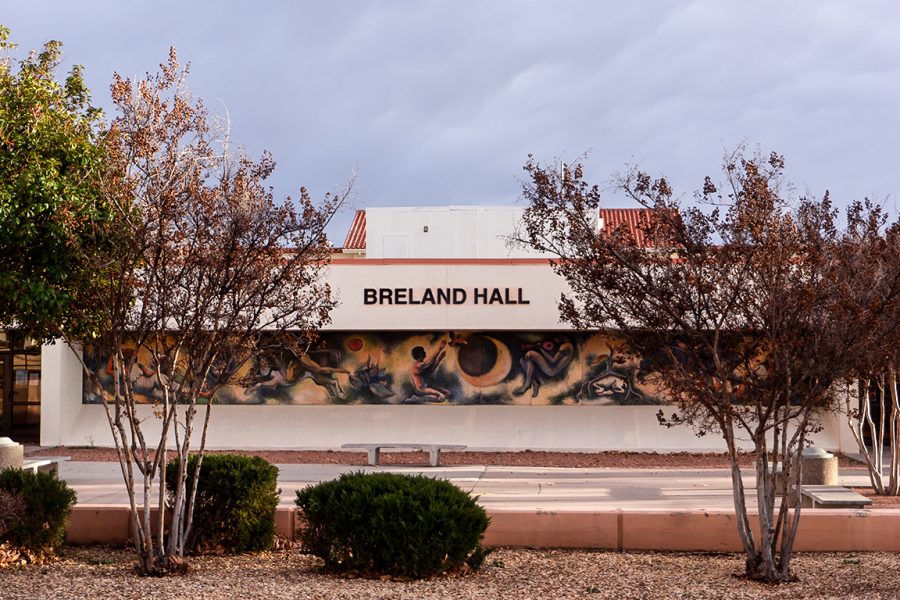Advancements in NMSU Government Department create more diverse opportunities
The Government Department’s classes are held in Breland Hall. Photos taken Jan. 23, 2023.
Expansive changes are developing in the NMSU Government Department, from new faculty members to new graduate minors, to new program initiatives. These changes include hiring professors with experience in evolving specialties, providing students with access to field work and research opportunities, and an additional graduate minor in nonprofit management.
Dr. Cheon Lee, assistant professor in the department, moved to New Mexico State from New Jersey, where he completed his PhD at Rutgers University. This is his first semester teaching at NMSU. He said that he didn’t hesitate to accept the job offer, because he loved the community and the faculty who were very welcoming.
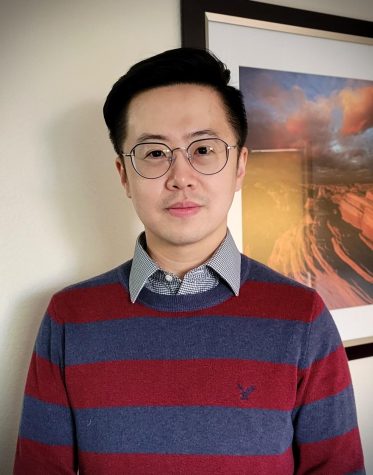
Dr. Lee said he’s thankful to interact with his graduate students and thinks the intersectionality within the different areas of the government department are beneficial, as they provide a multidisciplinary education for students. He remarked that he’s never experienced such a close community at any other university and appreciates NMSU’s efforts in bettering students’ overall education.
“The school is trying to push forward,” Lee said. “They [the university] are really trying to develop the school and make some progress so that students can have better education and can have better careers after they graduate from the school … our department is also contributing to that.”
Dr. Lee discussed how the department’s new graduate minor in nonprofit management will include courses that can provide insight into real-world examples of experiences in working for a nonprofit organization. He mentioned that he has a background in business administration, which he utilizes in his instruction within the curriculum.
“It’s more geared toward practical aspects of managing an organization,” he said. “Some of these old organizational textbooks don’t teach that kind of stuff … I’m trying to bring that [his professional background] into the classroom so students can experience what it’s like to be in a real organization, rather than studying theories that are decades old.”
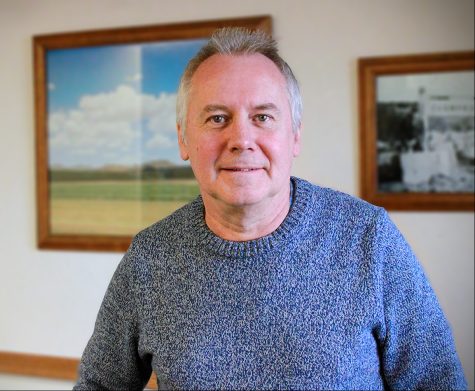
NMSU Government Department Head, Dr. Neil Harvey, has been a professor for the univeristy since 1994 and has led the department since 2011. He said that the addition of the new graduate minor will be beneficial since many students in various fields of study will engage with nonprofits in their careers. The department has consciously hired new faculty with teaching experience on philanthropy and nonprofits as an effort to respond to the “perceived need” in the community, according to Harvey.
“The nonprofit sector is growing and employs a lot of people in the state of New Mexico,” he said. “It’s a big need for qualified trained graduates to get involved in that sector.”
Dr. Harvey said that the government department didn’t change much in its composition for the first 20 years that he taught at NMSU. He said that while it was initially difficult to adjust to changes, it was an opportunity to “shape the character of the department moving forward.”
Dr. Cory Sukala, assistant professor in the government department, worked as a director of elections in Pennsylvania before coming to NMSU last fall. He remarked that he has taught at many schools where interactions were minimal between professors but was glad to find that the faculty at NMSU embrace collaborative work.
“This is a relatively small department in the scheme of things, but it’s also an extremely close-knit department,” he said. “The way that everyone does get along well in the department really has an effect on the students too. There’s a lot more interaction among everyone.”
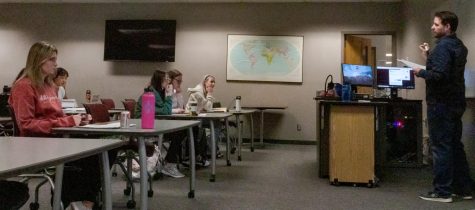
Harvey remarked that both Dr. Sukala and Dr. Lee bring their own real-world experience into the classroom. Before Sukala joined the department, there hadn’t been a political theory professor at NMSU for a few years – meaning that a large majority of students had never taken a course in the subfield before.
“Now that I’ve joined, we’re able to offer a lot of classes that just haven’t been able to be offered for several years at this point,” he said. “It’s like adding new classes in.”
Dr. Harvey also mentioned that in recent years, the department has increased interest in border and migration studies. Since 2018, the National Science Foundation has funded a program that provides students with opportunities for collaborative research with immigrant advocates and community groups in the region.
“We do that in collaboration with some local nonprofits, so there’s an overlap there,” he said. “It’s targeted to students from underrepresented backgrounds, for the most part, to try and produce greater diversity in the social science research community – in graduate school and beyond.”
He said that the goal of the program is to provide undergraduate students with research opportunities and teach them some of the key methods in social science research, which they can also apply to their own projects.
“We’ve seen this help students gain confidence in doing their own research outside of the classroom on topics that are quite important and meaningful, but also very complicated and changing,” Dr. Harvey said.
Another significant project within the department is the Migration and Integration Service Study-Abroad trip, which is directed by Dr. Sabine Hirschauer, who takes a group of students to Munich, Germany in the summer to learn about migration. This summer, she worked with nonprofits in Munich that are “catering to the needs of refugees,” according to Dr. Harvey. He thinks that collaborative research and field work are integral in well-rounding students’ education – something the department strives for.
By offering a balance of innovative changes and established programs, the department provides students with a wide range of advanced educational opportunities.
“We like to make sure students have a foundation from the academic study of these issues in the classroom, but we certainly prefer if they can participate in programs out in the community, whether that’s locally or internationally,” he said.

Riley Robertson is in her third year with The Round Up, and her second as the Editor-in-Chief. She is a senior at NMSU double majoring in Journalism and...
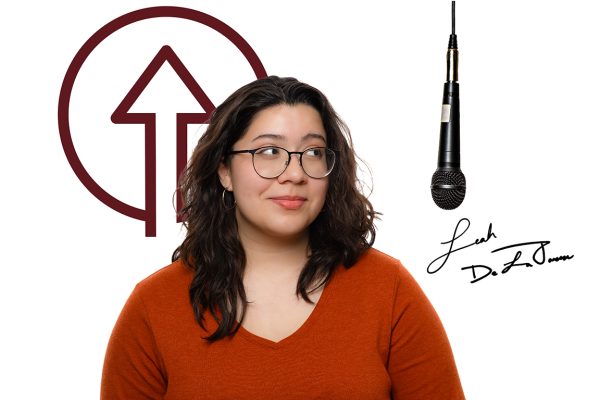
Leah De La Torre is entering her third year at The Round Up as a multimedia specialist. She is a junior at NMSU studying Journalism and Media Studies.
She...
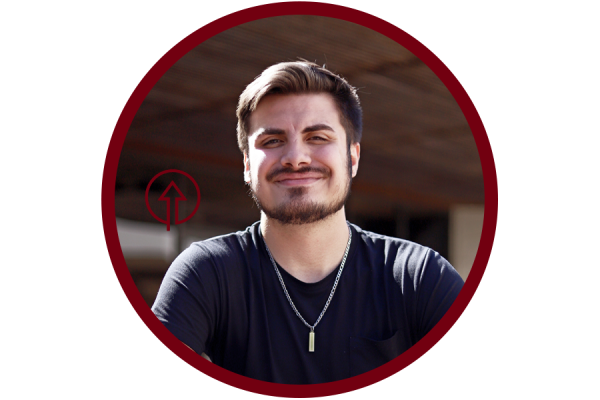
Carlos Herrera is entering his second year at The Round Up as a Multimedia Specialist. He is currently a senior in his undergraduate degree in Information...

